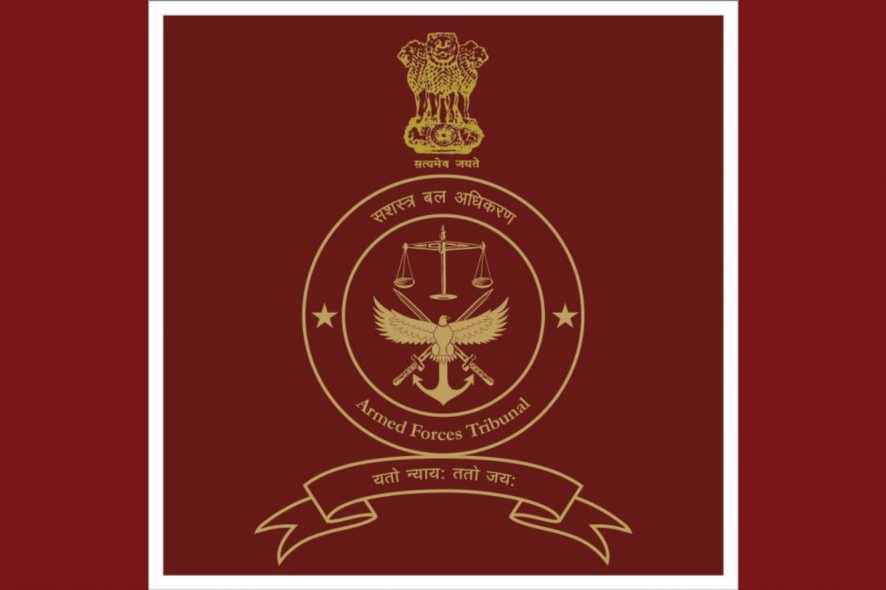Armed Forces Tribunal (AFT): The Division Bench of Justice Umesh Chandra Srivastava (Chairperson) and Vice Admiral Abhay Raghunath Karve (Member) allowed an application for disability pension filed under Section 14 of the Armed Forces Tribunal Act, 2007.
The applicant was enrolled in Army on 28-02-1994 and was discharged on 29-02-2016 in Low Medical Category on completion of service limits under Rule 13 (3) Item III (i) of the Army Rules, 1954. The Release Medical Board (RMB) assessed his disabilities (i) Obesity (E-66) at 5% for life, (ii) Type II Diabetes Mellitus (E-11) at 20% for life, (iii) Dyslipidemia (E-78.0) at 5% for life and (iv) ACL Tear Complete (RT) OPTD (S-83.5) at 20% for life, composite at 40% for life and opined the disabilities to be neither attributable to nor aggravated (NANA) by service. The applicant approached the respondents for grant of disability pension but the same was rejected.
The questions before the Tribunal were of two-fold:
(a) Whether the disabilities of the applicant were attributable to or aggravated by Military Service?
(b) Whether the applicant was entitled to the benefit of rounding off the disability pension?
The Tribunal, while relying on Dharamvir Singh v. Union of India, (2013) 7 SCC 316, held that reasoning of RMB for denying disability pension stating that injury (i) to (iii) were lifestyle disease and injury (iv) occurred when the applicant was on leave, was not convincing and did not reflect the complete truth on the matter. Since, injury (i) to (iii) started after the applicant had served 20 years of service the benefit of the doubt should be given to the applicant and second and third disabilities of the applicant should be considered as aggravated by military service. Regarding injury (iv), the Tribunal observed that applicant suffered an injury while going to join on permanent posting, hence, it should be treated to have causal connection with military service and the same should be considered attributable to or aggravated by military service.
On the point of rounding off of disability pension, the Tribunal cited Union of India v. Ram Avtar, 2014 SCC OnLine SC 1761, wherein the Supreme Court held that, “an individual, who has retired on attaining the age of superannuation or on completion of his tenure of engagement, if found to be suffering from some disability which is attributable to or aggravated by the military service, is entitled to be granted the benefit of rounding off of disability pension.”
In view of the above, the Tribunal set aside the impugned order holding that benefit of rounding off of disability pension at 40% for life should be rounded off to 50% for life and be extended to the applicant from the date of his discharge. The disabilities of the applicant were held as aggravated by Service and the respondents were directed to comply with the order within a period of four months from the date of receipt of a certified copy of this order. Further, the interest of 9% per annum was awarded for default till actual payment. [Krishna Kumar v. Union of India, O.A. No. 14 of 2019, decided on 09-12-2020]






